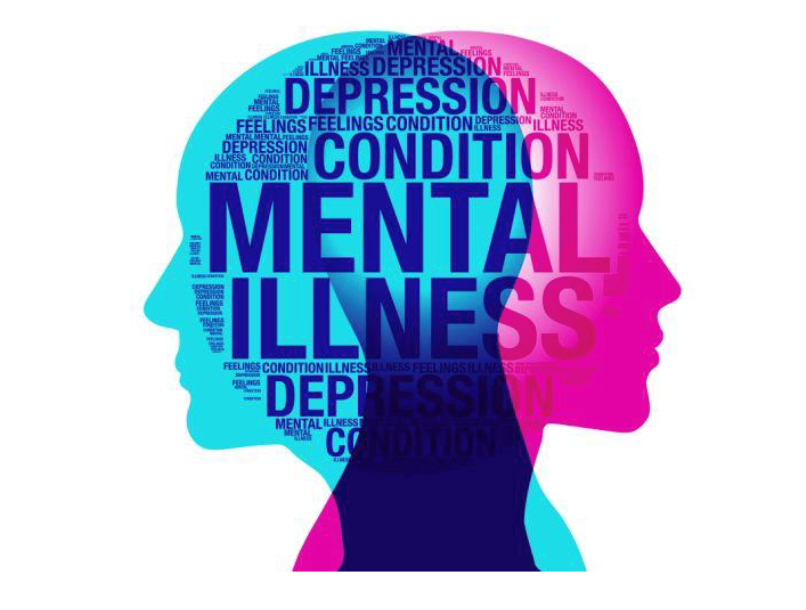Understanding the Impact of Workout on Mental Health and General Health
Beyond its physical benefits, the impact of exercise on one's mental health and wellness has been a subject of expanding rate of interest and study - Mental Health Services. As we browse with the intricacies of this relationship, a deeper understanding of exactly how workout influences our psychological state and total wellness emerges, losing light on the profound ramifications it holds for our daily lives and long-lasting wellness.
Advantages of Workout on Mental Health

Regular physical exercise has actually been shown to significantly boost mental wellness outcomes in individuals of all ages. Taking part in normal exercise not just benefits physical health but additionally plays a vital function in boosting psychological health and wellness. One of the primary benefits of workout is its capacity to minimize signs and symptoms of stress and anxiety and anxiety. Exercise stimulates the launch of endorphins, additionally understood as the "feel-good" hormonal agents, which can aid minimize feelings of stress and anxiety and boost state of mind.
Moreover, workout has been linked to improved cognitive feature and overall mind health (Mental Health Services). Studies have actually shown that regular physical activity can enhance memory, concentration, and decision-making skills. It can also add to a reduction in the danger of cognitive decrease as people age. In addition, workout advertises better sleep patterns, which are necessary for maintaining great mental health.

Link Between Exercise and Anxiety
Workout works as a potent system for reducing stress and advertising mental wellness by helping with the release of endorphins and fostering a sense of leisure and renewal. When stress levels rise, the body's fight-or-flight action is set off, resulting in raised cortisol degrees. Regular exercise aids combat this feedback by decreasing cortisol levels, which consequently eases anxiety. Furthermore, workout promotes the production of endorphins, frequently described as the body's natural medicines, which function as state of mind lifts and stress and anxiety reducers - Mental Health Services.
Taking part in exercise also uses a diversion from day-to-day stress factors, permitting people to concentrate on the existing moment instead of pondering on resources of stress and anxiety. In addition, workout can improve self-worth and self-confidence, giving a feeling of accomplishment and control that can deal with feelings of vulnerability usually connected with stress and anxiety. By incorporating exercise right into a regular routine, individuals can successfully manage stress levels, leading to improved psychological wellness and overall lifestyle.
Effect of Exercise on State Of Mind
Engaging in physical task has actually been revealed to dramatically influence one's state of mind and emotional well-being. The relationship in between exercise and state of mind is well-documented, with countless researches highlighting the positive results of physical activity on psychological health. When we engage in workout, our bodies release endorphins, typically called "feel-good" hormones, which can aid minimize sensations of stress and anxiety, anxiety, and anxiety. Furthermore, regular exercise can cause improved self-worth and a sense of achievement, which can further improve one's total mood.
In addition, the impact of workout on mood prolongs past just the prompt post-workout duration. Study recommends that individuals that maintain a constant exercise routine are more probable to experience lasting improvements in their mood and emotion. This can be connected to the structural adjustments in the mind that occur as an outcome of normal physical task, such as increased connection between mind areas in charge of managing emotions.
Workout and Cognitive Function
Various researches have actually shown the considerable influence of physical task on cognitive feature, highlighting the complex partnership between exercise and psychological procedures. Involving in normal exercise has actually been revealed to improve various aspects of cognitive function, including memory, interest period, analytical abilities, and overall psychological skill.
Additionally, regular physical activity has actually been linked to a minimized risk of cognitive decrease and neurodegenerative conditions such as Alzheimer's. Research studies recommend that people who preserve an energetic way of life throughout their lives experience slower rates of cognitive decrease compared to those that are inactive. On the whole, the evidence extremely supports the idea that normal workout is not just beneficial for physical health and wellness however additionally plays an important function in maintaining and boosting cognitive function.
Techniques for Incorporating Exercise
Adopting a structured technique to incorporating physical task right into day-to-day routines can considerably enhance the likelihood of keeping a regular exercise routine. Furthermore, integrating workout right into existing regimens, such as strolling or biking to work, taking the stairs additional hints rather of the elevator, or organizing regular exercise sessions, can aid make physical task a regular part of day-to-day life.
An additional useful method is to discover tasks that are satisfying. Whether it's dancing, cycling, yoga exercise, or swimming, taking part in activities that bring enjoyment Full Article enhances the possibilities of sticking to the workout routine over time. Differing the kinds of exercises and setting aside time for both aerobic and strength-training tasks can stop boredom and supply an all natural strategy to physical fitness.
Integrating workout right into social activities, such as signing up with a sporting activities group or workout group, can also cultivate a sense of area support and liability, making it simpler to stay committed to routine workout. By applying these techniques, individuals can develop a sustainable and fulfilling workout routine that advertises psychological wellness and general wellness.
Conclusion
In final thought, workout has numerous benefits for mental health and wellness and general health. By recognizing the influence of workout on mental health and wellness, individuals can take proactive actions to prioritize their physical activity and enjoy the positive results on their mental and psychological state.
